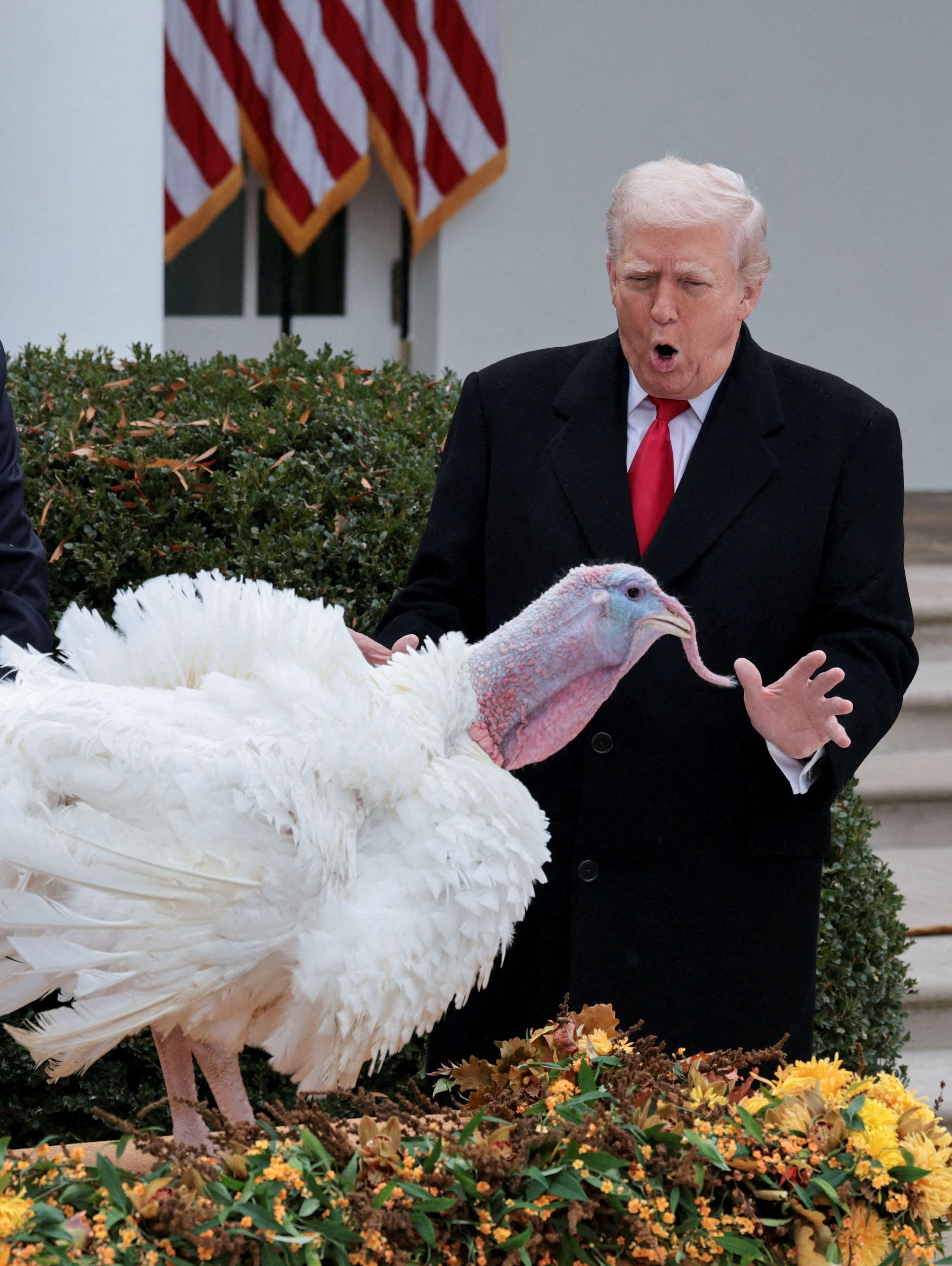
Dominating headlines are developments involving US President Donald Trump: his smashing of national and international norms, his erratic behaviour and utterances and the threats he poses to democracy and the environment.
This week’s global headlines featured not only the Ukraine "peace deal" but also several domestic Trump controversies.

In the United States, it is the busiest shopping day of the year, falling on the day after Thanksgiving and marking the start of the Christmas shopping season. In New Zealand, it now rivals Boxing Day sales.
Despite US language and customs (such as the rise of US-style Halloween) increasingly displacing New Zealand words and traditions, Thanksgiving dinners remain largely the preserve of expatriates.
From afar, it is difficult to grasp the four- or five-day Thanksgiving holiday in the United States and its scale.
The day traces back to the early New England pilgrims and their thanksgiving for harvests. With more than a touch of mythologising, its origins are linked to a 1621 feast with local indigenous people.
For some in the United States, the history of colonialism and genocide casts a shadow over Thanksgiving. For most, however, it remains a cherished occasion for family gatherings.
The idea of "thanksgiving" appeals to Civis. Across cultures, traditions of thanking deities for the earth’s bounty abound. In a time of environmental degradation, we should appreciate the benefits of a healthy planet.
Although city life in the 21st century distances us from the realities of autumn harvests, we should still appreciate what the season has to offer.
"Prayers of Thanksgiving" are a mainstay of Christianity. Modern-day life coaches also stress the importance of gratitude, sometimes urging us to note three things we are thankful for each day.
By stressing our blessings, we prepare ourselves for positive, healthier lives and stronger communities. Gratitude fosters a culture of respect and generosity while reducing destructive emotions such as resentment and envy.
Traditional Thanksgiving dinners feature New England foods such as potatoes, squash, corn, green beans, cranberry sauce and pumpkin pie.
The centrepiece is the turkey, with 280 million people consuming about 40 million birds, at a cost approaching $US1 billion ($NZ1.74b).
Stories of presidential turkey-pardoning rituals date back decades, although details are unclear. George H.W. Bush established the modern annual pardon in 1989.
Civis cannot resist the quip, no doubt used by many, that the current president is a turkey pardoning turkeys.
What might finally poleaxe Mr Trump is the rising cost of living, including Thanksgiving foods. Still, the present annual food-price increase of about 3% is lower than this country’s 4.7%.
Turkeys, though, are popular loss leaders. Civis found one basic frozen variety selling at Walmart for only US84c a pound.
That’s the equivalent of about $NZ3.30 a kilogram.
Turkeys are traditional Christmas fare in New Zealand, albeit on a small scale.
Although there’s no space for another holiday, perhaps we could emphasise giving thanks more during Christmas and New Year.
Rather than beating ourselves up over the year’s failings as we consider New Year resolutions, we could reflect on — and give thanks for — what went well and for the good things in life.
* * * *
Finally, a good-news takeaway on the US invasion of New Zealand and British English.
Civis feared that the North American "takeout", food ordered to be eaten off-site, might be making inroads.
However, Google Trends tells a different story: "Takeout" remains flat near the bottom of the usage graph, while "takeaway" continues to fluctuate as usual.












